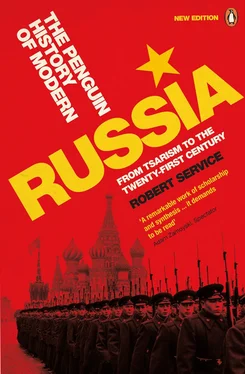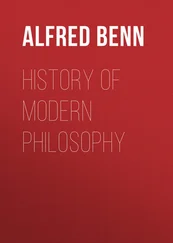Those who disliked his project either joined the Menshevik party or abandoned political involvement altogether. 6The Bolshevik party anticipated socialist revolution across Europe as well as in Russia. The word went forth from Petrograd that when the Bolsheviks took power, great changes would immediately be set in motion. By midsummer 1917 they had worked out slogans of broad appeal: peace; bread; all power to the soviets; workers’ control; land to the peasants; and national self-determination.
The Bolshevik party adhered to democratic procedures only to the extent that its underlying political purpose was being served; and the circumstances after the February Revolution fulfilled this condition. In May and June the Bolsheviks increased their representation at the expense of the Mensheviks and Socialist-Revolutionaries in many factory committees and some soviets. The party is said to have expanded its membership to 300,000 by the end of the year. Apparently about three fifths of Bolsheviks were of working-class background. 7Such was the expansive revolutionary spirit among them that the Bolshevik leaders were carried away by it at least to some extent. And unlike the Mensheviks and Socialist-Revolutionaries, the Bolsheviks had neither any governmental responsibility nor many administrative burdens in the soviets. They had the time to conduct inflammatory propaganda, and they used it.
Intellectuals of middle-class origins were prominent in the party’s higher echelons; the return of the émigrés — including Trotski, who worked alongside the Bolsheviks from summer 1917 after years of antagonism to Lenin — reinforced the phenomenon. Their skills in writing articles and proclamations and in keeping records were essential to party bodies. Yet the fact that practices of electivity and accountability pervaded the party impeded Bolshevik intellectuals from doing just as they pleased. At any rate, Bolsheviks were united by their wish for power and for socialism regardless of class origins. From Lenin downwards there was a veritable rage to engage in revolutionary action. 8Lenin revelled in his party’s mood. At the First All-Russia Congress of Soviets in June 1917, the Menshevik Irakli Tsereteli commented that no party existed that would wish to take power alone. Lenin, from the floor, corrected him: ‘There is!’ 9
Liberal ministers, however, were almost as worried about the Mensheviks and Socialist-Revolutionaries as about the Bolsheviks. In late June, when the Provisional Government decided to recognize the Ukrainian Rada as the organ of regional government in Kiev, the Kadets walked out of the cabinet. 10This could not have happened at a worse time. A Russian military offensive had been started on the Eastern front’s southern sector: Prince Lvov and Alexander Kerenski, his War Minister, wanted to prove Russia’s continuing usefulness to her Allies and to gain support at home by means of military success. But German reinforcements were rushed to the Austro-Hungarian lines and Russian forces had to retreat deep into Ukraine. And in those very same days the Bolsheviks were making mischief in Petrograd. They had tried to hold their own separate demonstration against the cabinet earlier in June — and only a last-minute intervention by the First All-Russia Congress of Soviets stopped them. The inhabitants of Petrograd were gripped by the uncertainty of the situation.
The Bolshevik Central Committee drew encouragement from the crisis, and planned to hold yet another armed demonstration in the capital on 3 July. Evidently if things went his way, Lenin might opt to turn the crisis into an opportunity to seize power. 11The Provisional Government quickly issued a banning order. Unnerved by this display of political will, the Bolshevik Central Committee urged the assembled workers and troops, who had sailors from the Kronstadt naval garrison among them, to disperse. By then Lenin had absented himself from the scene, and was spending his time at a dacha at Neivola in the Finnish countryside. But the crowd wanted its demonstration. The sailors from the Kronstadt naval garrison were prominent among the more unruly elements, but local workers and soldiers were also determined to march through the central streets of Petrograd. The Provisional Government ordered reliable troops to break up the demonstration by firing on it. Dozens of people were killed.
Ministers held the Bolshevik Central Committee responsible for the clashes even though it had refrained from participating in the demonstration. Ministry of Internal Affairs officials claimed that the Bolsheviks had received money from the German government. Lenin and Zinoviev managed to flee into hiding in Finland, but Trotski, Kamenev and Alexandra Kollontai were caught and imprisoned. In Petrograd, if not in most other cities, the Bolshevik party reverted to being a clandestine party.
These complications were too much for Prince Lvov, who resigned in favour of his War Minister, Kerenski. Russia’s ruin was ineluctable, according to Lvov, unless her socialists agreed to take prime responsibility for the affairs of state. Certainly Kerenski was already a master of the arts of twentieth-century political communication. He wore his patriotism on his sleeve. He was a brilliant orator, receiving standing ovations from his audiences and especially from women who were enraptured by his charm. He had a picture designed of himself and printed on tens of thousands of postcards; he had newsreels made of his major public appearances. Kerenski was temperamental, but he was also energetic and tenacious. He had carefully kept contact with all the parties willing to lend support to the Provisional Government, and had avoided favouritism towards his own Party of Socialist-Revolutionaries. Kerenski believed he had positioned himself so as to be able to save Russia from political disintegration and military defeat.
His elevation had been meteoric since the February Revolution. Born in 1881 in Simbirsk, he was just thirty-six years old when he succeeded Prince Lvov. By training he was a lawyer and had specialized in the defence of arrested revolutionaries. He also was acquainted with many leading figures in Russian public life through membership of the main Freemasons’ lodge in Petrograd; but he had no experience in administration. And he was thrust into power at a time of the greatest crisis for the country since the Napoleonic invasion of 1812.
His delight at being invited to replace Prince Lvov was followed by weeks of difficulty even in putting a cabinet together. The rationale of his assumption of power was that socialists ought to take a majority of ministerial portfolios; but Tsereteli, the leading Menshevik minister under Lvov, stood down in order to devote his attention to the business of the soviets. Most Kadets, too, rejected Kerenski’s overtures to join him. Not until 25 July could he announce the establishment of a Second Coalition. It is true that he had managed to ensure that ten out of the seventeen ministers, including himself, were socialists. Even the Socialist-Revolutionary leader Chernov agreed to stay on as Minister of Agriculture. Moreover, three Kadets were persuaded to ignore their party’s official policy and join the cabinet. Nevertheless Kerenski was exhausted even before his premiership began, and already he was sustaining himself by recourse to morphine and cocaine.
He focused his cabinet’s attention on the political and economic emergencies in Russia. Diplomatic discussions with the Allies were not abandoned, but there was no serious planning of further offensives on the Eastern front. Nor did Kerenski place obstacles in the way of Mensheviks and Socialist-Revolutionaries who sought to bring the war to an end by convoking a conference of socialist parties from all combatant countries in Stockholm. 12In fact the conference was prevented from taking place by the intransigence of the Allied governments, which stopped British and French delegates from attending. It had been a doomed effort from the start, as Lenin was pleased to note.
Читать дальше












